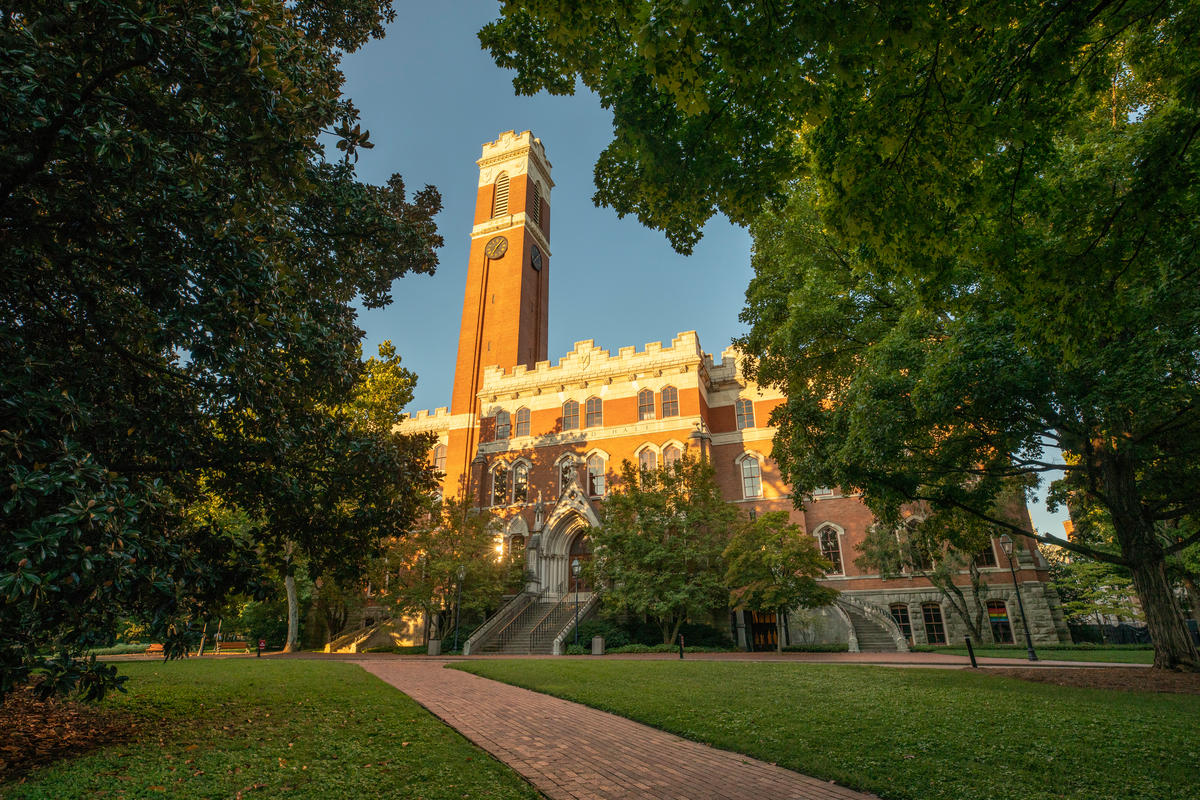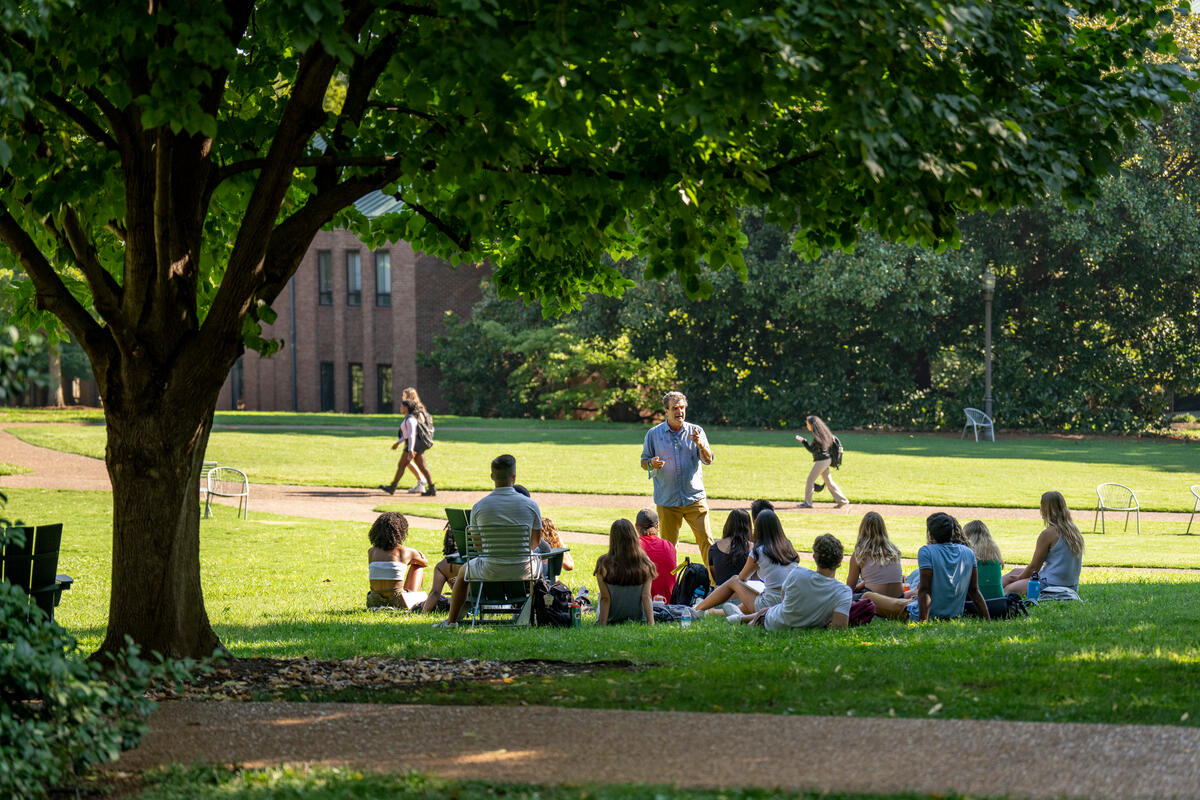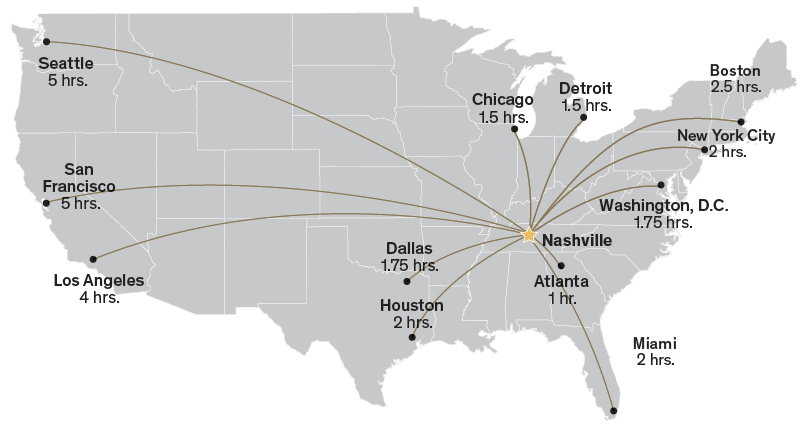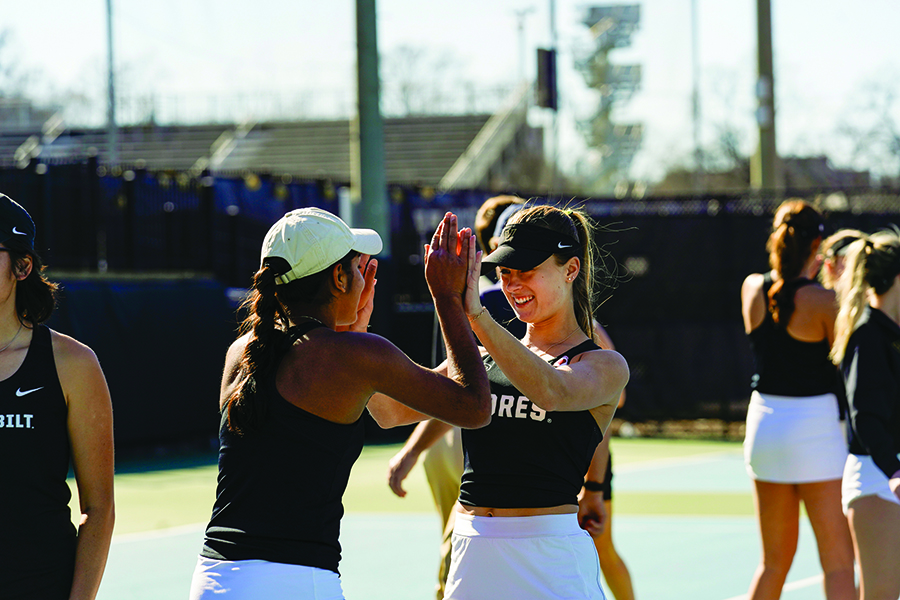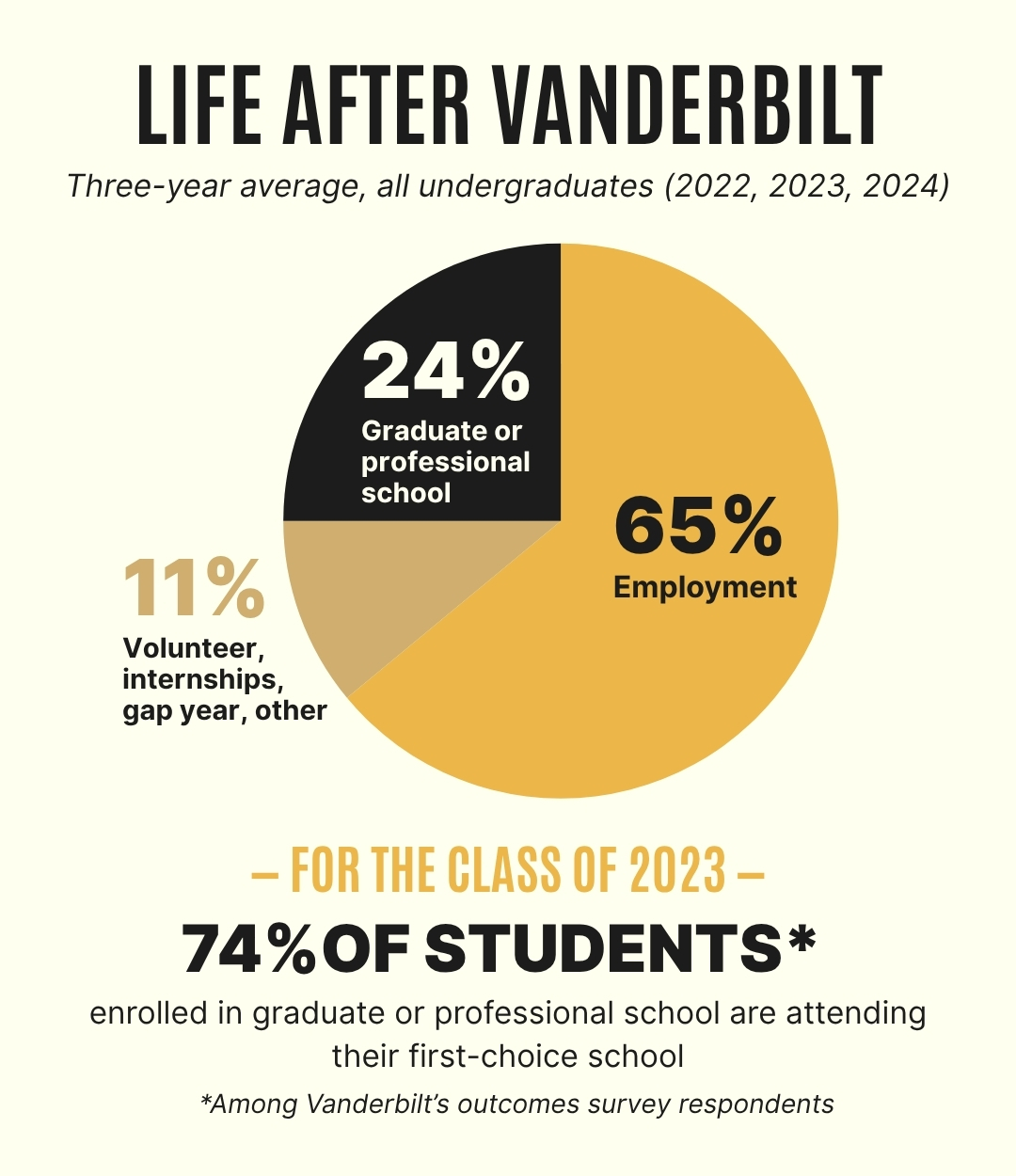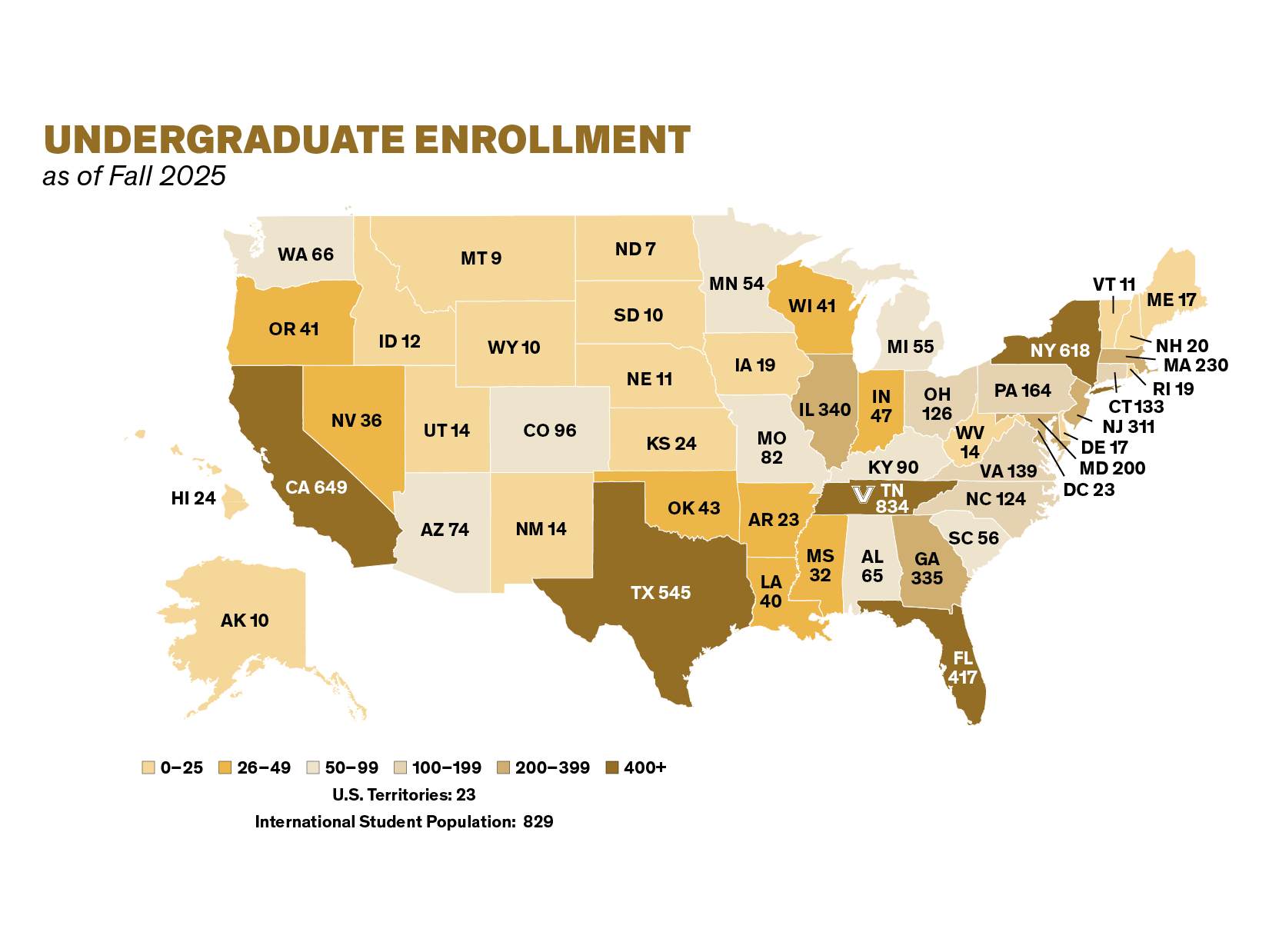Fast Facts
Enrollment (Fall 2025)
Undergraduate 7,366
Graduate and professional 6,304
Total 13,670
All Undergraduate (Fall 2025)
Female 53%
Male 47%
First-Year Students Entering Fall 2025
American Indian/Alaska Native 0.5%
Asian American or Hawaiian/Pacific Islander 17.5%
Black/African American 5.9%
Hispanic or Latino 10.3%
International 13.1%
Multiracial (non-Hispanic) 6.0%
Not reported 7.2%
White 39.5%
ACT Middle 50% 34-35
SAT Evidence-Based Reading and Writing Middle 50% 740-770
SAT Mathematics Middle 50% 770-790
National Merit Scholars 115
Academics
Student-to-faculty ratio 8:1
Average class size 13
Undergraduate Admission (Fall 2025)
First-year applicants 48,658
Admits 2,592
Admit rate 5.3%
Campus Life
Student organizations 450+
Commodore Athletics
Varsity teams 11 women's, 6 men's
NCAA championships 9
Club sports 34
Intramural sports leagues and tournaments 20+
Financial Aid & Scholarships 2025-26
Undergraduates receiving some form of financial assistance 64%
Average financial aid package $79,177
First-Year Student Retention Rate 96%
Students Graduating in 6 Years 93%
